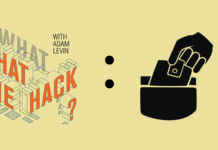

Military identity theft – in which the scum of the earth (read: identity thieves) steal the identities, life savings and futures of our brave soldiers in uniform – has been a big topic recently at IdentityTheft911.com.
Since our private information is saved on databases around the globe, and flies nonstop across the Internet, military identity theft can happen anywhere, to any sergeant or general.
But some soldiers are especially at risk. We know from the Federal Trade Commission that identity thieves target soldiers overseas, especially those serving in war zones, on the presumption that people who are busy defending themselves in war may not be spending much time defending their checking accounts from fraud.
We also know that the areas around U.S. military bases are especially dangerous. Businesses that offer instant credit, especially used car dealerships and rent-to-own stores, may be especially fertile breeding grounds for identity thieves.
What can we do to prevent this crime? If you’re not a soldier or the relative of one, consider these steps:
- Stay alert. Do you know an unemployed loafer who comes home with a fancy new truck? Someone living near a military base, who suddenly seems to be living beyond his or her means? Be nosy. If the person seems nervous answering basic questions (“Wow, that’s a nice truck! Did you get a job?”), consider contacting local police.
- Support efforts to increase penalties for identity theft. Many states and cities still treat identity theft as a misdemeanor, even if it causes as much damage as traditional theft. That must change. Penalties should be even higher for crimes against especially vulnerable groups – including soldiers who are serving overseas, as well as children and the elderly.
- Watch your own accounts. There’s no reason to think that a successful identity thief would stop at targeting soldiers. Stay on top of your own finances, checking all your bills, credit statements and credit report for fraud. If you find something suspicious, investigate and report it. You’re not only helping yourself, you’re helping the brave soldiers who risk their lives protecting all of us.
To learn more about military identity theft and how to fight it, check out Identity Theft 911′s October newsletter.
Originally posted at Credit.com.









